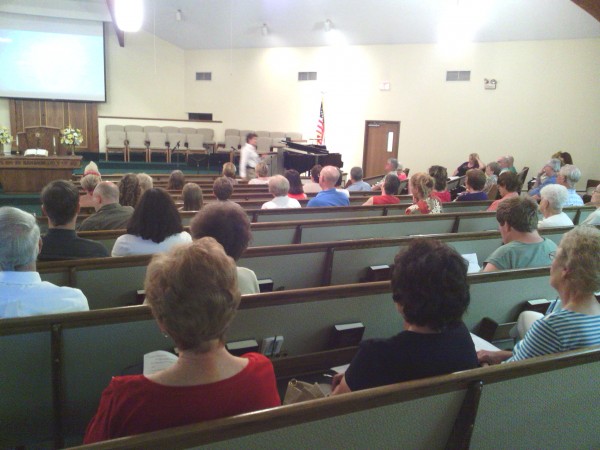What’s the prognosis? A vital question indeed! If you are the person sitting in a doctor’s office or hospital having to make that inquiry, you realize what a big question it is. The prognosis of an illness or disease is the likely outcome – and the chances of recovery. It comes from two roots: pro – to project forward, and gnosis – a Greek word for knowledge. In essence, a medical practitioner does his best to look down the road and make a prediction as to what will happen in the long run as a result of an illness wearing on a human body. We differentiate prognosis from diagnosis, for a diagnosis only has to do with determining the nature of a disease – not its final outcome. The prognosis affects our future; it has to do with the resulting effects of an illness.
Did you realize that the Greek word prognosis is actually used exactly two times in the New Testament of the Bible? In neither case is it used of medical issues per se; however, it is used in an all-encompassing and amazingly healing manner! Believe it or not, prognosis is behind the word foreknowledge in the informative text of I Peter chapter one. The apostle Peter is writing to the first century Christians who have been dispersed throughout Asia Minor because of persecution. He reminds them that although they are exiles in this current world system, they have been chosen “according to the foreknowledge of God the Father.” (I Peter 1:3, NASB)
In other words, God the Father projected ahead of time our ultimate condition – chosen to belong to Him! The Creator of the universe actually picked us! He looked down through the annals of time and forecast our position despite our sinfulness. All who call upon Jesus as Savior have been given the greatest prognosis – eternal life! Now, let’s understand how this can possibly be. The answer is the result of an even more spectacular prognosis – one we cannot fully comprehend with our finite minds, but it is nonetheless true.
The only other time the Greek word prognosis appears in the Bible is in Acts chapter two. The apostle Peter is preaching, and he boldly proclaims, “Men of Israel, hear these words: Jesus of Nazareth, a man attested to you by God with mighty works and wonders and signs that God did through him in your midst, as you yourselves know – this Jesus, delivered up according to the definite plan and foreknowledge of God, you crucified and killed by the hands of lawless men. God raised him up, loosing the pangs of death, because it was not possible for him to be held by it” (Acts 2:22-24, ESV, emphasis mine). There it is again, a term delivering true hope. Jesus was not crucified because the devil had the upper hand and was winning some kind of evil victory; Jesus was crucified according to the prognosis of God! Not for one minute was Jesus’ arrest and crucifixion out of God’s control. The Father knew exactly what He was doing in allowing and orchestrating these unimaginable events. The Father gave His Son a prognosis of death so that we might have a prognosis of eternal life! Wow!
The only two times we see prognosis in the Bible is when it comes to the Father planning the crucifixion of His Son and when it comes to the Father planning to give us life through His Son. I Peter 1:3-4 goes on to say that we have been “born again into a living hope by the resurrection of Jesus Christ from the dead” and into an inheritance that never fades away.
The Perfect Doctor, the Great Physician, has clearly stated His prognosis for you and me. No matter what earthly disease you face, no matter what trouble of the heart you endure, no matter how bleak your financial or social situation; the Doctor of your heart and body never gets it wrong. He has declared that you have eternal life because His Son endured temporary death. The hope of a heart without guilt and an eventual body without pain is ours.
What is the outcome of this disease called sin? It would be death. “The wages of sin is death” (Romans 6:23, ESV). The prognosis for you and me is potentially eternal death. However, God gave Jesus the prognosis we deserved. Now our future is eternal life – lasting and complete healing for all that ails the soul and body. “But the free gift of God is eternal life in Jesus Christ our Lord” (Romans 6:23, ESV). Thank you, Father, for the prognosis. Thank you, Jesus, for carrying out the plan. Thank you, Holy Spirit, for telling us.








